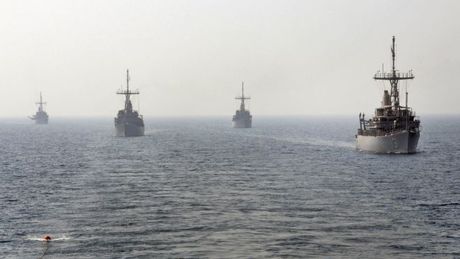
US Leads Major Naval Drills in Persian Gulf

Warships from around the world were assembling in the Persian Gulf on Sunday for what the US military described as "the most widely attended international naval exercise ever held in the Middle East."

The exercise, which Washington says involves drills to improve mine detection and clearance, comes at a time of escalated "Israeli" threats against Iran.
British newspaper The Daily Telegraph reported that "in preparation for pre-emptive or retaliatory action by Iran to a potential "Israel" strike, battleships, aircraft carrier, minesweepers and submarines are preparing for a 12-day exercise."
"Countries participating in the drill include the United States, Britain, France, Saudi Arabia and the AUE," the Telegraph reported.
The US Naval Forces Central Command said that the International Mine Countermeasures Exercise 12 involved vessels and officials from 30 countries in six continents. It did not name the participating countries.
"This exercise is about mines and the international effort to clear them," said Vice Admiral John W. Miller, Commander of the Central Command, in a statement on its website.
"Represented here are the best of our individual countries' efforts dedicated to securing the global maritime commons and I look forward to seeing how this exceptional team of professionals moves forward."
The Central Command said the Persian Gulf exercise started Sunday with a meeting for senior commanders when they would view the latest mine hunting and disposal inventions. In the second phase, sea maneuvers would be held including mine detection and clearance operations.
The Bahrain-based Central Command is responsible for an area comprising some 2.5 million square miles stretching from the Persian Gulf to parts of the Indian Ocean.
Tehran has threatened to block the Strait of Hormuz, through which 40 percent of the world's sea-borne oil exports passes, and target US military bases in the region if it was attacked.
Source: News Agency, Edited by moqawama.org
- Related News



